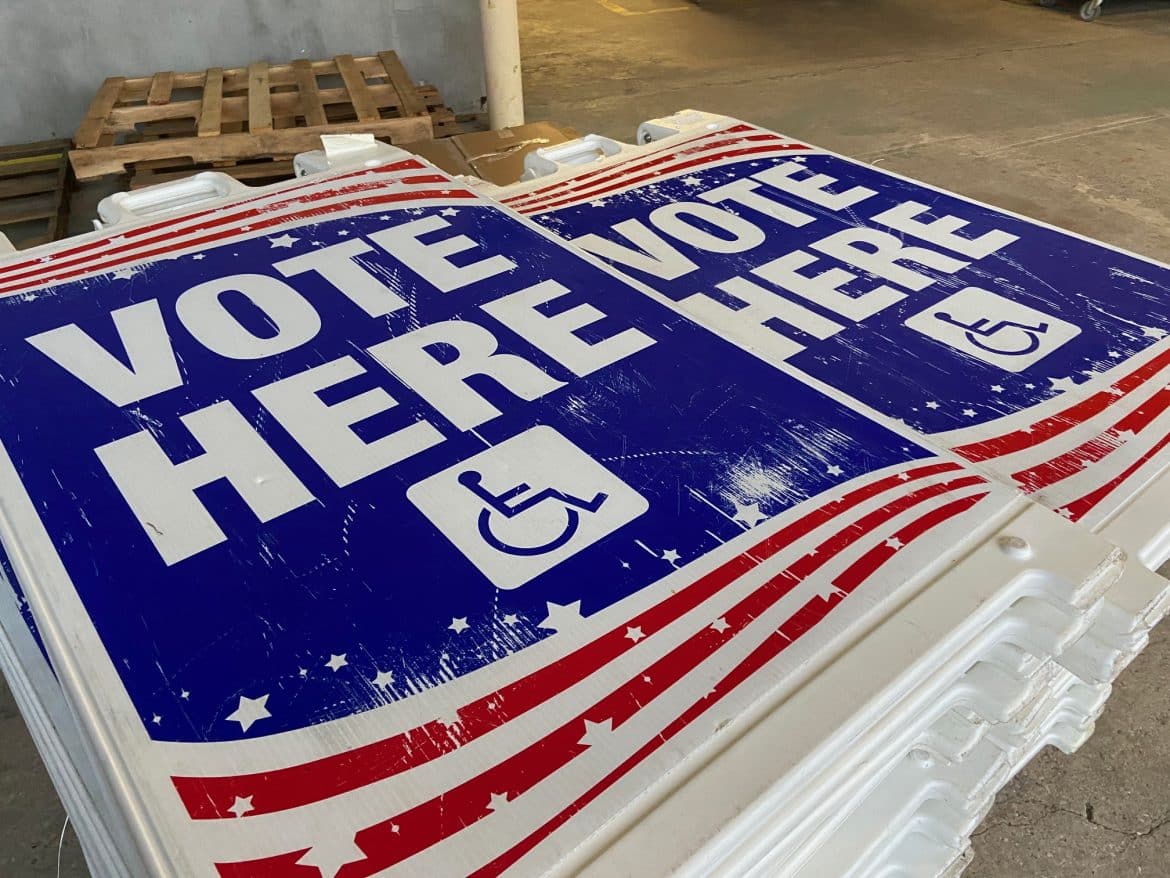The election originally scheduled for Oct. 9, which includes an open primary for all City Council seats, has been rescheduled for Nov. 13 due to Hurricane Ida.
To give voters a chance to learn the policies, platforms and personal attributes their City Council candidates plan to bring to the office, Uptown Messenger has sent questionnaires to all of the District A and District B candidates. District B candidate Rella Zapletal reveals her answers below.
City Council District B
Rella Zapletal, Democrat

Rella Zapletal
Place of birth: Metairie
Schools attended and degrees obtained: Episcopal School of Acadiana. Bachelor’s in biological sciences, Louisiana State University. Juris doctor, Tulane Law School
Current neighborhood: Touro Bouligny
Profession: Attorney
Memberships: Louisiana State Bar Association, Children’s Law Committee
Covid vaccination status: Vaccinated
What is your vision for the district?
I will fight for a District B and a New Orleans that everyone can be proud of. That starts with demanding, and getting, city services that work for us. I will work to ensure our trash is picked up twice a week, every week, and for reliable power and water services. I envision a New Orleans that functions for our citizens, year round. Before Hurricane Ida, I was the only candidate in this race to release a plan to hold Entergy accountable and reduce power outages.
I want to see a district well represented by someone who is more interested in results than campaign talking points. That’s why I’ve been open with our community about my plans on crime, quality of life, education and more. Our communities can’t afford a candidate interested in self-promotion any longer.
What would be the first ordinance or resolution you would introduce?
My first legislative approach to meaningful change would be a sweeping set of policies to hold Entergy accountable. That would require an annual independent audit of Entergy’s profits, expenditures and planned long-term investments in infrastructure. That audit would also evaluate Entergy’s customer service, billing accuracy, and adherence to prior commitments to bring more green energy onto our grid. It would also prohibit any costs of advisers, legal or travel from being passed on to ratepayers ever again.
What should be the spending priorities for the $388 million the city will receive from the American Rescue Plan?
ARA dollars must be spent on expenses or consequences that address public health concerns or replace lost public sector revenues. That means we can use these federal funds to upgrade sewer and water infrastructure, which currently poses a major threat to the health and life of our people. With frequent boil advisories, low water pressure, and aging pipes, every citizen in our city is at risk. This one-time money can be utilized for what is a one-time expense to finally bring more of our water system into the 21st century.
What would you do to better address juvenile crime?
We must invest in our youth, and the return on investment is massive. We must start early by fully funding all early-childhood education seats. Then we must ensure our kids have outlets — fully funding NORD and revamping the programs offered. Investing in after-school and mentorship programs available to all.
In addition, although unpopular, the city needs a dedicated millage to address all juvenile issues, similar to what Jefferson Parish is doing. Currently, the juvenile justice system is dependent on the administration for funds, which fluctuates year to year preventing the court system from working properly. That has to stop.
Should cash bail be eliminated?
Pretrial reforms are severely needed to create a stable, safer New Orleans. Long pretrial detention leads to higher rates of recidivism and future incarceration because it impacts families’ economic status when a family member accused, but not convicted, of a crime cannot continue to work. This is especially true when it comes to individuals charged with nonviolent crimes, and those charged with nonviolent crimes should not languish in jail awaiting trial when their families need income and support.
Of course, this is appropriately at the discretion of judges, but we need to set some guidelines for pretrial release that will allow those who were working at the time of arrest to continue to do so if they pose no threat to other citizens. Since nonviolent defendants are unlikely to be incarcerated if convicted, rehabilitation is made even more difficult by the challenges of pretrial incarceration.
What ideas do you have to bring non-tourism jobs and economic activity to New Orleans?
We must first make our city safe. Businesses are afraid to relocate to New Orleans due to the high levels of crime. The data clearly shows that companies relocate not because of hefty tax incentives, but because the city is safe, with good schools and a high quality of life. We must work to make New Orleans the ideal place to live — that starts with a safe city, the best schools and reliable city services. In addition, we must provide better incentives for companies that relocate to New Orleans and hire locals, who invest in training local people, and recruiting and retaining New Orleanians.
How can the city more quickly increase the number of affordable housing units?
The city must develop the acres upon acres of HANO land that is available. The current inclusionary zoning ordinance does not incentivize developers to build affordable housing for those who most need it. By revamping the mandatory inclusionary zoning ordinance to truly incentivize private developers to build affordable units, we can actually grow the amount of affordable housing units.
Is the city successfully handling short-term rental licensing and enforcement?
The city is not successfully handling short-term rental enforcement. I have heard too many horror stories of residents reporting an illegal short-term rental and not getting anywhere with the city. The current teeth to the enforcement mechanism are not enough — we must do something more drastic to prevent illegal short-term rentals.
In addition, the administration has failed to properly fund the STR enforcement office. When elected, I will make it a priority to ensure the STR enforcement office is fully funded. Too many city leaders are making money from STRs and that self-interest has prevented our city from creating meaningful policies with proper enforcement.
What can the Sewerage & Water Board do to reduce street flooding in non-hurricane events?
We have billions of dollars of equipment that is constantly in such a state of disrepair that it is not operational. That, combined with the fact the general public tends to learn about broken equipment just before major storms, is a failure of leadership. Ultimately, it costs the city far more to try to recover from a normal-course thunderstorm that destroys property than to properly fund the S&WB to pay for both qualified and accountable leadership, as well as world class equipment.
In addition, the administration should focus on ensuring that all catch basins are cleaned on a regular basis. If one visits the catch basin status map on the city’s website, one sees an equal number of those awaiting inspection and cleaning and those that have already been cleaned. In addition, the catch basin status map designates catch basins that were cleaned in 2017 as cleaned. Of note, there are several catch basins in District B that have been cleaned several times, while others have not been cleaned since 2017. That is absurd. We have the data, let’s use it to reduce street flooding in non-hurricane events.
What is the most important personal attribute you would bring to city government?
I have a proven record of being able to finish what I start, even when the goal is lofty or requires collaboration between political adversaries. I’m proud of the solutions I’ve directly implemented for historic preservation and public safety despite the current failed leadership in City Council District B. I spearheaded the creation of the Touro Bouligny Cultural District, which encourages the redevelopment of blighted properties. This has already had a substantial impact on the neighborhood by bringing blighted properties back into commerce.
In addition, as a concerned citizen, I submitted a proposal to our Security District requesting that stop-for-pedestrian crosswalk signs be installed along our section of Magazine Street. Prior to installment, children going to school and shoppers and diners supporting our local Magazine Street businesses had to direct traffic on their own to ensure safe crossing. The crosswalk signs have been a huge success ensuring safety for our children walking to school, as well as patrons of Magazine Street businesses. Making changes that benefit the community as a whole has been at the forefront of my work as neighborhood association president.
Over the years, I’ve learned leadership must listen to the concerns at the neighborhood level and even the block-by-block level to address community concerns. I am committed to continuing that same commitment as council member. I will bring my resolve to fully follow through on projects to the City Council. That follow-through is severely lacking in our current leadership.
The deadline to register to vote in the Nov. 13 election is Oct. 13 in person or by mail or Oct. 23 through the GeauxVote Online Registration System.
Early voting is Oct. 30 through Nov. 6 (excluding Sunday, Oct. 31. The deadline to request an absentee ballot is Nov. 9 by 4:30 p.m. Absentee ballots must be received by the registrar of voters is Nov. 12 by 4:30 p.m.
See here for a complete list of candidates. See here to find out what your ballot will look like.
